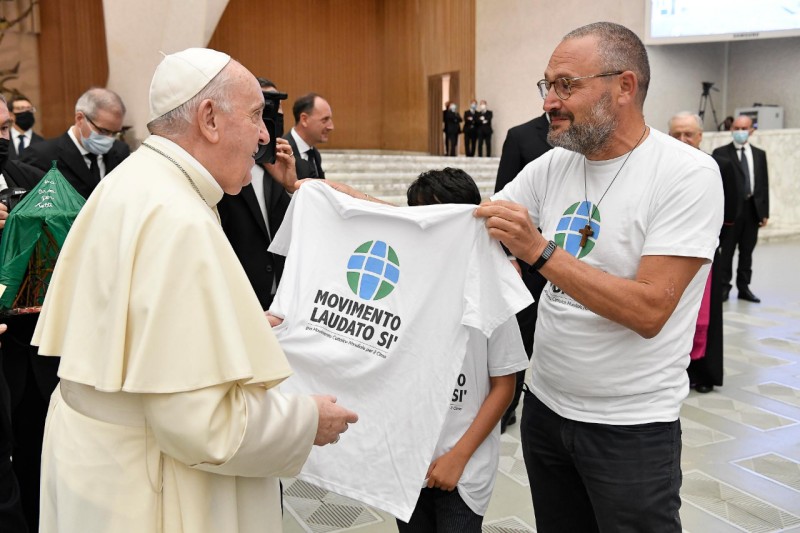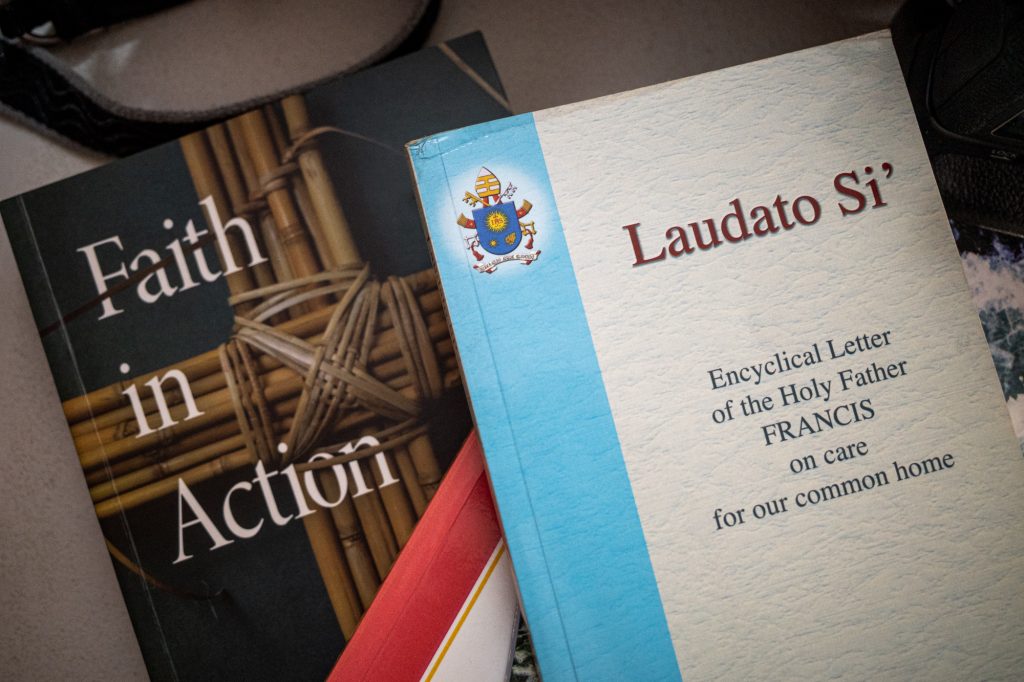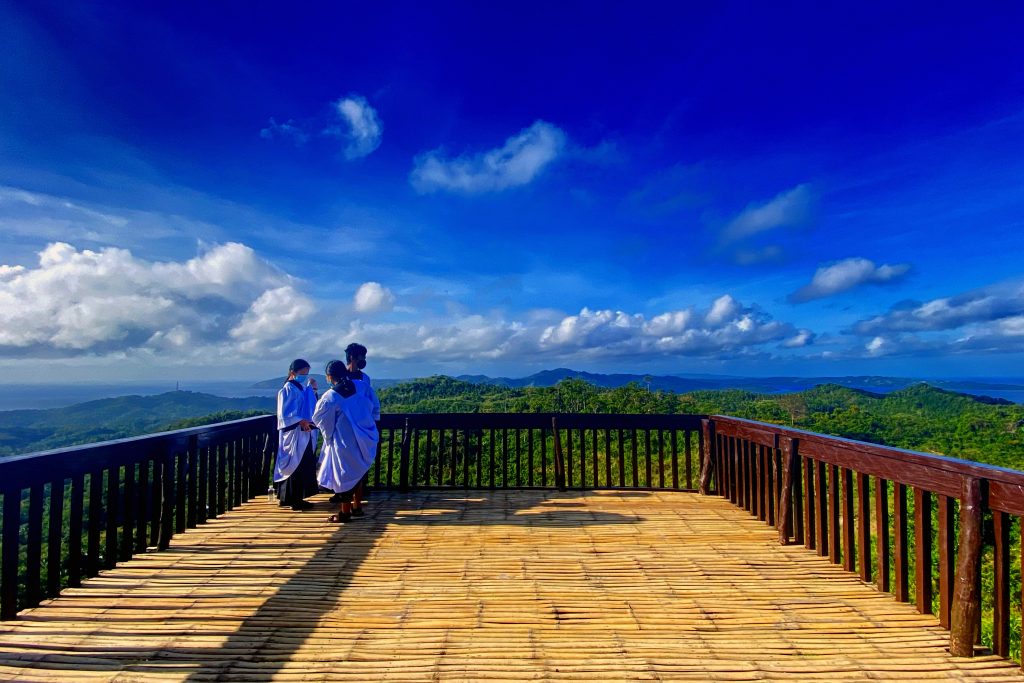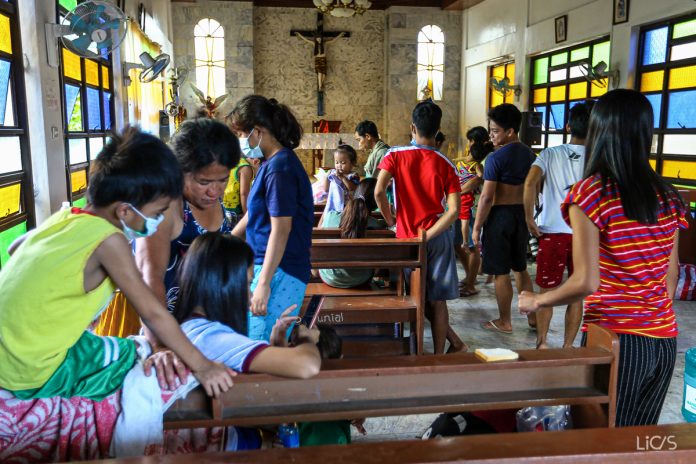The whole world was surprised after Jorge Mario Bergoglio chose the name Francis when he became pope. It was the first time in the entire Church history that this name was taken.
Many Catholics and non-Catholics, however, were excited about what message the new pontiff would bring to the Church and to the world knowing that Saint Francis himself was a man who brought a radical renewal in the Church.
Indeed, like Saint Francis, the Pope shows great concern for the poor and for Mother Earth who is also poor. He desires a poor “Church for the Poor.”
He sees the suffering of the poor and the suffering of the earth as one and as deeply connected.
If Saint Francis’ life was a response to the voice of the crucified Christ telling him to rebuild the Church, today, the present pope’s message and example calls all, Christians or people of other faiths and beliefs, to heed and reply to that same mission of renewal and conversion for the common good.
Environmental damage and the poor
Pope Francis’ encyclical on environmental protection – the Laudato Si, tells us that our care for our common home is an urgent response to the cry of our least brothers and sisters.
We cannot postpone our response. The longer the delay, the longer the earth, humanity, and especially the poor will endure the consequence of our irresponsibility.
The cry of the earth is also the cry of the poor since the poor themselves are the most vulnerable from the effects of the environmental crisis.
One of the issues pointed out by Pope Francis is on the access to safe drinkable water. The pollution we caused to our bodies of water deprived many of safe drinkable water.
It has also negatively affected other living creatures. And because the living world is interconnected, the poison absorbed by marine organisms goes to the seafood we eat, which gradually poisons us instead of giving us nourishment and health.
It also affects fishermen who depends on the sea for a living since the damage we brought to our watersheds badly affects marine life. The reality that drinking water needs to be bought became normal to us, and the poor are the ones who suffer most.
“Our world has a grave social debt towards the poor who lack access to drinking water, because they are denied the right to a life consistent with their inalienable dignity,” said the Philippine bishops in their pastoral letter on ecology in 2019.
We have turned God’s life-giving creature water into a cause of death. Other than the crisis of drinking water, our land is also continually being destroyed by extractive mining, deforestation, building of dams, coal mining projects, and other industries that create great damage to the environment.
Archbishop Romulo Valles of Davao, in the pastoral letter, spoke of the connection of social problem and environmental crisis, of the poverty of people and of the poverty of Mother Earth.
Valles, who heads the bishops’ conference, said “Poverty and environmental degradation mutually reinforce each other… Biodiversity is also a concern that has a direct connection to poverty and development.”
The prelate said the poor in the rural areas are directly dependent on biodiverse resources for food, fuel, shelter, medicine, and livelihood.

“This variety of living organisms together with its environment provide critical services that are necessary for survival such as air and water purification, soil conservation, disease control, and reduced vulnerability to disasters such as floods, droughts and landslides,” he said.
“When these resources or their environment are subjected to pressures that exceed their capacity to be resilient or to bounce back to their original state, imbalance in the ecosystem is created, leading to degradation,” he added.
Valles stressed that “when situations like these arise, they make lives, especially in the rural areas, more difficult; they also make development efforts more challenging.”
Pope Francis himself wrote that a true ecological approach should always be a social approach and must include discussions on justice in environmental debates so as “to hear both the cry of the earth and the cry of the poor.”
The pontiff emphasized this because when addressing environmental issues, it should also always be a response both to the cry of the earth and to the cry of the poor.
These two go together; they cannot be tackled apart from each other or it would not be helpful if our focus is just on the degradation of the environment while neglecting to uphold human dignity.
The Ecumenical Patriarch Bartholomew, in his message for the World Day of Creation, said that we can look for alternative ways of economic development that do not harm the environment.
Advancement in economy and in science and technology can be used for our betterment, but if abused it can also be the cause of our own destruction. Future generations will surely suffer the consequences of our actions if we do not consider its consequent effects.
It is selfish if only the benefit of some people is considered while the harm that it brings to others is ignored.
In such a case, economy or technology is only beneficial to some people and at a certain span of time while its unthought effect can bring greater damage or even irreversible destruction.
Moreover, the poor are not just recipients of justice; they are agents of transformation. Their respective culture, traditions, and beliefs can teach humanity on how we are to use the good of the earth for the common good.
“Our forefathers and tribal brothers and sisters today still attempt to live in harmony with nature. They see the Divine Spirit in the living world and show their respect through prayers and offerings. Tribal Filipinos remind us that the exploitative approach to the natural world is foreign to our Filipino culture,” said the Philippine bishops.
We learn from them to see the world as sacred. This shed light that each of us has something to share and each of us has our own poverty that can only be remedied by the assistance of the other.
Responding then to the cry of the poor does not only mean defending the rights of the poor or standing for justice. It also entails listening to the wisdom and learnings they teach.

Human Dignity
The human person is both the foundation and the goal of society and thus it is the task of the society to defend and foster the dignity of each person.
Human dignity means that every human person possesses the right to be respected and must not be degraded by other individuals.
Moreover, “human dignity is more about living virtuously than possessing rights.” This means that every person is called to flourish in virtue.
A person’s dignity as an image and likeness of the Creator is expressed when he lives a life of virtue. Nonetheless, human dignity is not earned, but is a gift from the Creator; it is simply possessed.
Our dignity as created in God’s image and likeness “shows us the immense dignity of each person ‘who is not just something, but someone.’”
The Creator’s special love for every human person places every man and woman above other creatures. However, this does not mean that we are to overlook the fact that each creature is important and has its own purpose.
Man’s use of animals, plants, and inanimate beings requires respect for the integrity of creation, considering always the common good.
Also, Man is to treat animals with kindness since they too are God’s creature and their very existence glorifies the Creator who surrounds them with his providential care.
Still, care for the environment is incomplete if is divorce from our concern for our fellow human beings.
Pope Francis wrote, “It is clearly inconsistent to combat trafficking in endangered species while remaining completely indifferent to human trafficking, unconcerned about the poor, or undertaking to destroy another human being deemed unwanted. This compromises the very meaning of our struggle for the environment.”
Pope Francis’s Laudato Si is not just a “green document” solely concerned about the environment’s deterioration; it rather aims to give response both to the cry of the earth and to the cry of the poor.
The Pope warns that answering misguided anthropocentrism with “biocentrism” would only add another problem since human beings cannot be held responsible for the world unless the uniqueness of human dignity is recognized and valued.

Gratefulness and conversion
We care for the earth not just to protect the planet itself but also as an act of care for the poor. All creatures are connected to one another and are connected to God. We think we are lords and masters of creation when we fail to see the connection and relationship we have to God our creator and to our fellow creatures.
“By contrast, if we feel intimately united with all that exist, then sobriety and care will well up spontaneously.” The awareness of our deep connection with other creatures leads us also to the attitude of gratefulness and awe before the beauty and of God’s creation.
The words of the psalmist become our very own prayer: “When I look at your heavens, the work of your fingers, the moon and the stars that you have established; what are human beings that you are mindful of them, mortals that you care for them?” (Ps 8:3-4). Gratefulness enables us to be responsible stewards of creation.
The present condition of our common home and of its effect on the poor calls us to conversion. Complacency and prolonging the delay of our response only worsens our common problem.
An urgent change in our lifestyle and attitude towards creation is necessary for healing to take place. We are to be mindful that the poor suffer most the effects of climate change, pollution, and the destruction of the environment. Every human person has the right to live a dignified life and enjoy the gifts and beauty of creation.









